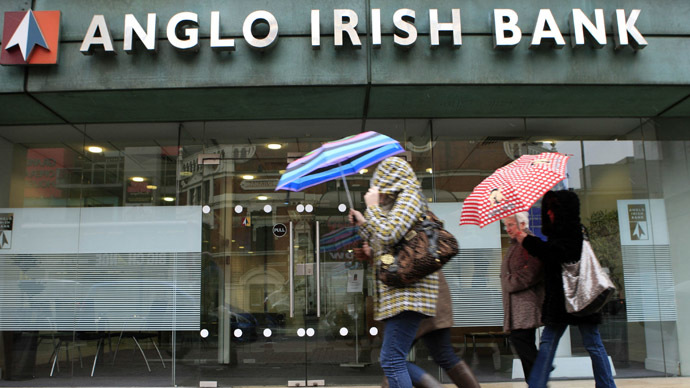Which is stronger: The EU or the law?

The EU has had a bad week. While one of its presidents produced a barely credible series of rants camouflaged as a ‘State of the Union’ address, lawyers have been striking down dubious financial proposals.
Nobody loves a banker nowadays and with good reason. Bankers made
money in the boom thanks to their obvious skill and judgment.
Indeed they made so much money the government had to bail many of
them out when it transpired they were bankrupt. Then they made
money once again because governments gave them free cash from
Central Banks. In essence, banks have become absurd.
Theater of absurdity
Financial absurdity is usually the prerogative of politicians with a desire to spend more than they can ever afford. In recent months the EU has been keen to get one up on the bankers by producing ever more absurd proposals to accompany their increasingly absurd currency. These proposals have themselves become a theater of… well… absurdity. The EU blamed bankers for the financial crisis while bailing the banks out and then rewarded banker incompetence with ‘quantitative easing’ (aka ‘free money’). Chancellor Merkel has even actively protected German banks from their worst investments by forcing nations like Ireland to take bailouts.
On top of this ludicrous fiasco, the EU decided to make their markets impervious to decline by banning short selling - the process where those who perceive overvalued markets can sell bonds or shares they do not own. It is a commonly-used practice which helps make markets more efficient. Spendthrift politicians detest short sellers identifying when the emperor has no clothes. (When the emperor is fully clad, short sellers lose money and markets bounce back as buyers are attracted - thus efficient markets are made).
With the eurozone nakedly exposed due to its overarching
political hubris, restricting markets appeals to politicians more
than actually addressing the EU’s economic inconsistencies. That
King Canute demonstrated the folly of such restrictive regulation
is clearly lost on modern European ‘leaders.’ Pan-EU regulator
ESMA banned short selling practices as part of a bureaucratic
drive to push back the tide of markets.
Now the European Court of Justice has caused consternation in
Brussels by suggesting this ban is itself illegal.
Perhaps the EU will just appoint a new court until they get the
answer they require, rather like their consistent approach to
referenda.
Bad week gets worse
Making a bad week worse for the EU, legal opinion has undermined the mooted Financial Transaction Tax. (Previously EU economists dismissed FTT as financially toxic but hey, where’s the fun in having economists within your bloated bureaucracy if you are actually going to listen to them?) So to divert attention from bankrolling/bailing out the banksters, 11 nations proposed a tax on investment transactions. This has also been sold as a method to control markets. The problem is that a competitive global economy enables choice. Impose an EU FTT and investors will invest elsewhere: Singapore, Russia, Wherever! Thus the EU proposes making everybody liable for FTT no matter where they traded with an EU entity. The US government protested mightily at this regressive extra-territorial manoeuver, while Britain threatened court action.
Opinion has now leaked that the FTT is illegal on multiple
grounds. With an inspiring ‘touchy feely’ sensitivity towards EU
treaties and international law, the German government immediately
raced out a statement anticipating immediate adoption of the FTT!
Once again EU absurdities make Lewis Carroll’s ‘Alice in Wonderland’ look like highly plausible adventures. Even taming the banks is a feint: the real aim is to create the precedent of direct taxation - syphoning FTT funds to the EU itself - a squalid money grab to support the ‘Eurogarchs.’
Unilateral FTTs in France and Italy have already driven investors elsewhere while advocates ignore the obvious: banks will largely avoid FTT leaving financial end users to pay the levy. In other words, ordinary citizens will be ‘rewarded’ for saving with severely-diminished pensions.
Sweden is foremost amongst EU nations opposing an FTT. They know
only too well that their own experiment ended in ignominious
government retreat as investors evaporated from the local market.
Despite such clear lessons from recent history, the EU’s wretched
autocrats and a clutch of diminishing national political figures
cling desperately to the notion they can tax with impunity in a
global marketplace.
Hopefully the rule of law will prevail to protect citizens and
their savings from unrepresentative political forces with no
understanding of real world economics, let alone real life.
The statements, views and opinions expressed in this column are solely those of the author and do not necessarily represent those of RT.
The statements, views and opinions expressed in this column are solely those of the author and do not necessarily represent those of RT.













